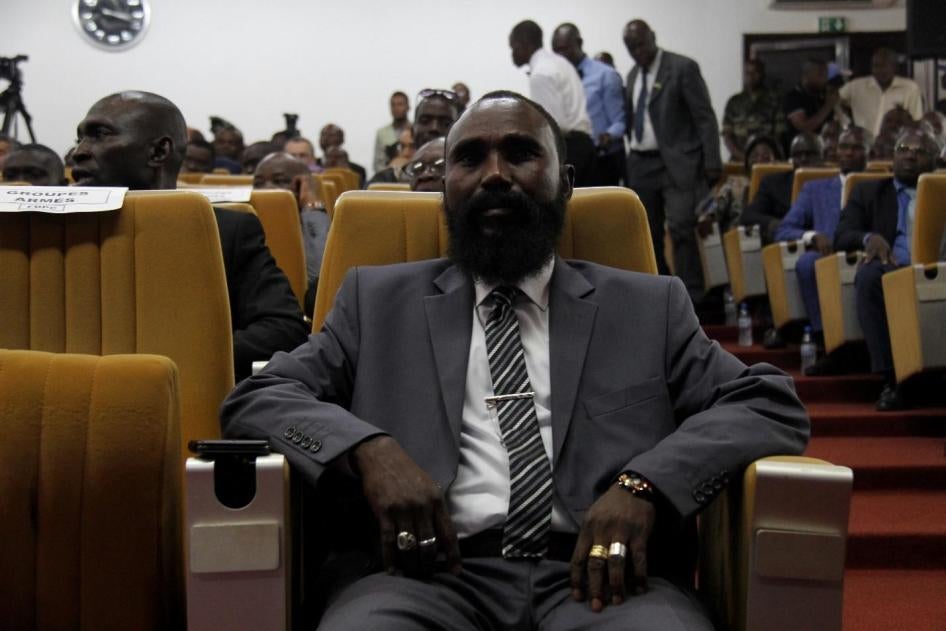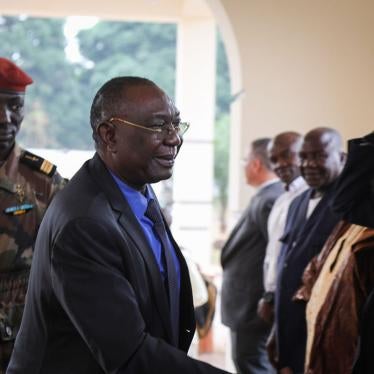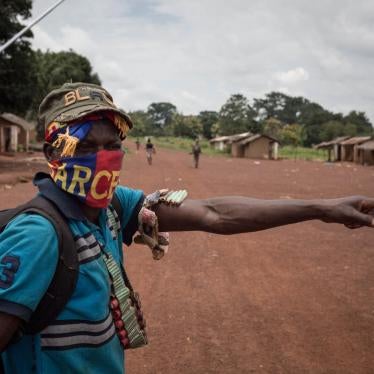In the Central African Republic a year after the government and 14 armed groups signed a peace accord, civilians remain at significant risk from serious human rights abuses. The deal, commonly known as the Khartoum Accord, was negotiated by the African Union (AU) during 18 months of talks. But brutal attacks on civilians continued even then, a harbinger of how little regard the armed groups would have for the deal.
Over the course of negotiations, commanders of the armed groups told me that calls for accountability would jeopardize peace. The final document remained vague on steps needed to ensure post-conflict justice and does not mention specific processes, or efforts to promote justice in the country.
Since the accord was signed in Sudan on February 6, 2019, groups have committed abuses, violating it almost daily. Return, Reclamation and Rehabilitation (3R), a rebel group based in the Ouham Pendé province led by Sidiki Abass, killed at least 46 civilians in three separate and brutal attacks just three months after the ink had dried.
National consultations in 2015, known as the Bangui Forum, had prioritized justice and stated that “no amnesty” would be tolerated for those responsible for and acting as accomplices in international crimes. Among recent efforts was the establishment of the Special Criminal Court, mandated to try war crimes and crimes against humanity, which formally began operations in late 2018. Last August, the court announced it was seeking to take up investigation into crimes committed by 3R.
Abass and other armed group leaders fear justice. If the guarantors of the deal intend for it to contribute to a durable peace in the country, they need to show that those who target civilians will be investigated and prosecuted. One year on from the peace deal, efforts like the Special Criminal Court should be reinforced as part of a new chapter for the country. Fair, credible trials by the Special Criminal Court, and the International Criminal Court, which is also conducting investigations in the country, will show that killings, sexual slavery, and pillage will no longer be tolerated.










